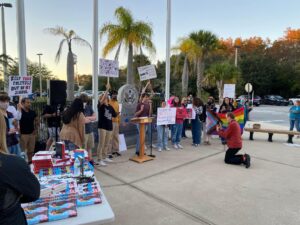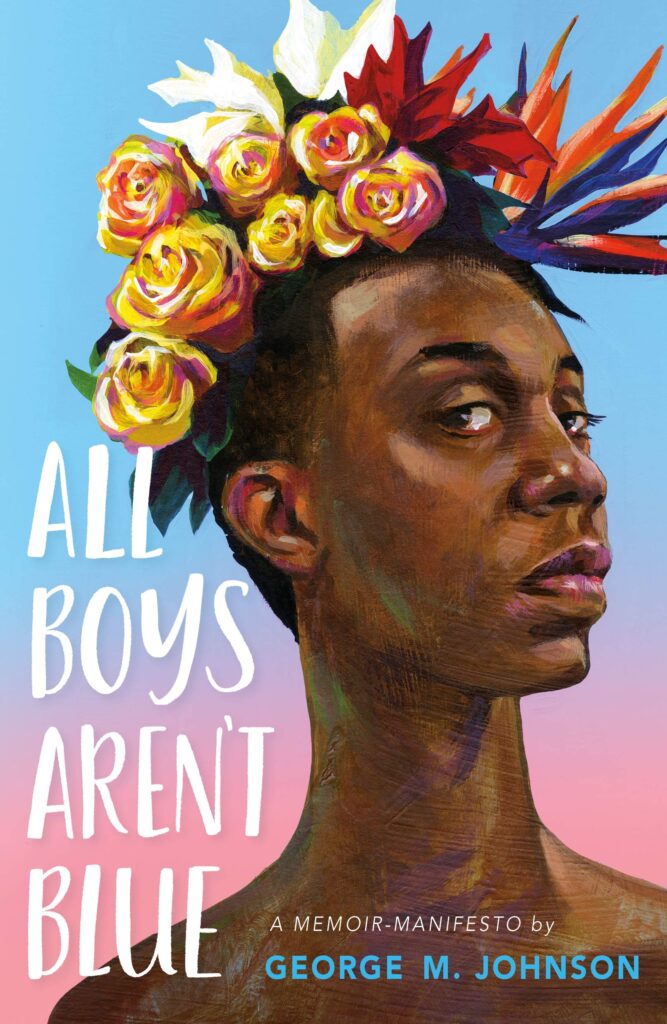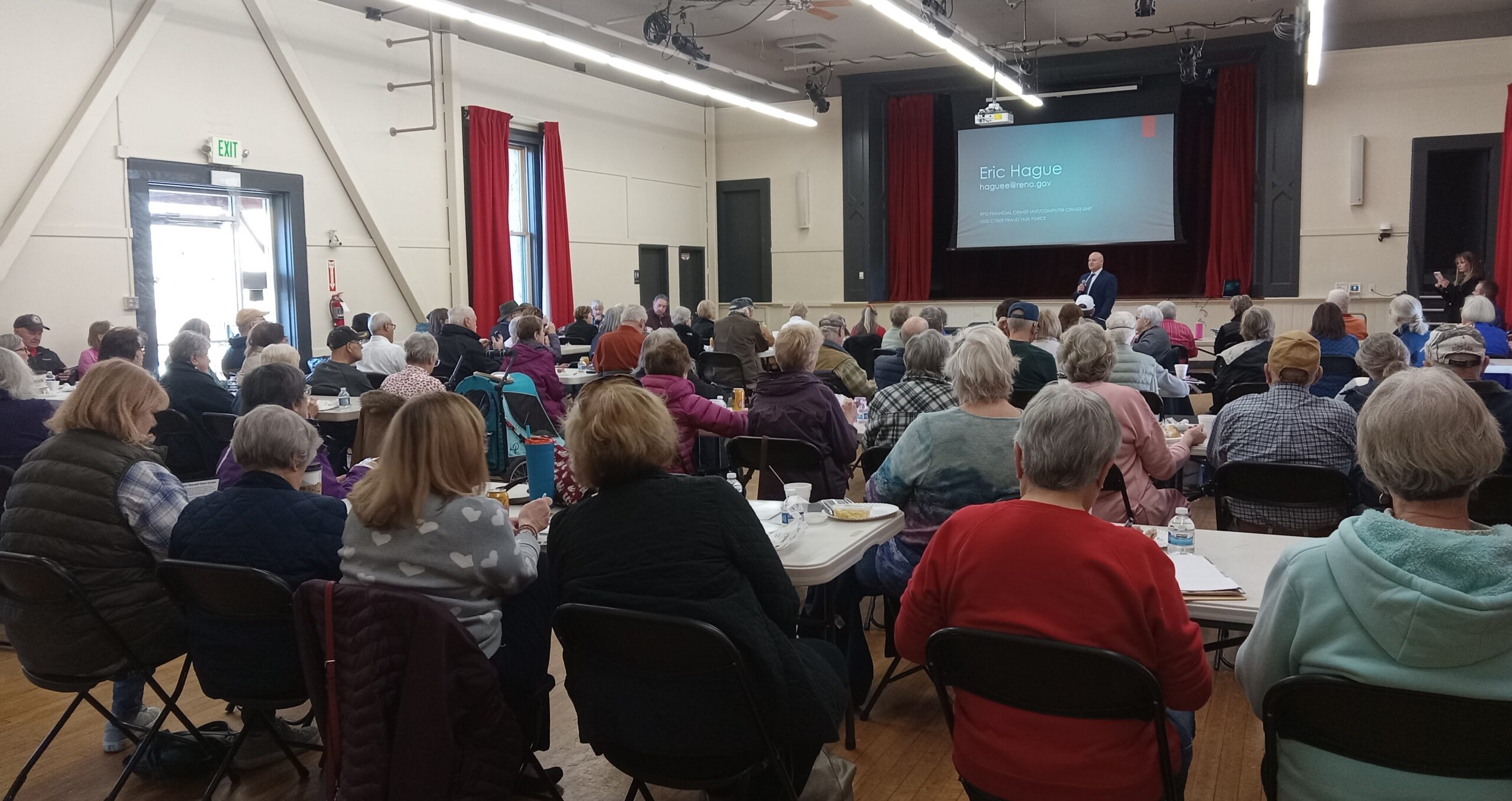(LOS ANGELES) — George M. Johnson, author of the memoir “All Boys Aren’t Blue,” learned a school library in Kansas City had pulled their book from library shelves in November after a librarian tagged them in a Facebook post.
A local parent association took issue with how openly the book addressed queerness and race, according to the Kansas City Star. And although critics have praised the memoir for its honesty, Johnson isn’t surprised by the censorship their work is facing in Missouri and schools across the country.
“We always knew this was coming at some point, because we knew conservatives were going to be upset with the fact that a Black queer person was telling a very true narrative in a way that I guess they have always protected the white queer storytellers who have also told this pretty similar narrative,” Johnson, 36, told The Click.
“All Boys Aren’t Blue” is another in a long list of books being challenged by conservatives around the country at a time when heated debates around race, identity, and sexuality have spilled into the mainstream. And according to Johnson, the drive to shield white youth from the experiences and realities of those who don’t look like them is at the heart of this movement.
“All this is an attempt to protect the unfounded innocence of whiteness,” Johnson said.
The Policing of Lived Experiences
Johnson’s book, published in April 2020, details the writer’s life as they navigated childhood and adulthood while trying to understand their identity.
In the same month as the Missouri ban, a school board member in Florida’s Flagler county filed a police report with the local Sheriff’s Office after the board failed to take action against her request to have Johnson’s book removed from school library shelves. Jill Woolbright, the board member, also confessed in the police report to not having read the book entirely.
In the report, Woolbright said she found the book to contain harmful materials and felt that whoever was responsible for the book being available to students should be prosecuted.
“These topics are not too heavy for children because these topics and the things that we say still happen to children,” Johnson said. “And so that’s really what it is. For me, it’s not pornography, it’s my life.”
Johnson’s memoir dives into dark memories and experiences that they say they encountered in their youth, including sexual abuse from a cousin at age 12. They feel as though many young people experience these things and it’s important to talk about it.
“You can’t tell me that I shouldn’t be telling a 12-year-old what to look for, and how to talk about consent and non-consensual things, and how to talk to their parents about these issues, and why we stay silent,” Johnson said.
Students Begin to Fight Back
Despite the outcry by some parents, students from the schools where the book has been challenged have staged protests against the censorship. Jack Petocz, a junior at Flagler Palm Coast High School, decided to take a stand.

Jack Petocz leads a protest against the proposed banning of queer literature as his Florida school. [Credit: Jack Petocz]
Petocz announced his protest and rally via Twitter, garnering immediate attention. The protest and rally took place outside the Flagler school district offices on Nov. 16 with about three dozen participants, according to Petocz. About six or seven dozen counter-protestors also showed up to support the ban, Petocz said.
“They came in droves as we were first there starting that rally,” Petocz said. “There were homophobic pastors and people from our community, known politicians within our community, and alt-right people that I’m familiar with through my local politics efforts coming and screaming homophobic things at us.”
Petocz strategically planned for the protest to take place outside of the already scheduled school board meeting. Petocz also attended the meeting to address his concerns.
Petocz recalled how the meeting itself was disruptive and chaotic. “There are rules set in place. You’re supposed to speak directly to the board itself. You’re not supposed to go to members sitting down or within the chamber,” he said. “Screams were heard, and threats of knocking people’s teeth out by people spreading misinformation and so many other misconstrued truths.”
Petocz said that he challenged the school board based on his understanding of the law when it comes to intellectual property. He stated that the books did not pass the Miller test. Created by the Supreme Court in 1973, the test uses three criteria to determine whether something can be deemed obscene
According to The First Amendment Encyclopedia, the three criteria of the Miller test are that the work must encourage sexual interest, clearly depict offensive sexual conduct, and lack in academic and cultural value.
Since the book’s release, it has also been named on multiple best-read lists, and it’s been turned into a filmed dramatic reading featuring stars like Jenifer Lewis from “Black-ish” and Dyllón Burnside from “Pose.” A live-action television series is currently in pre-production with actress Gabrielle Union’s I’ll Have Another production company.
A few weeks after the protest, the Flagler County Sheriff’s Office said they “found no grounds for a criminal inquiry, as no crimes had been committed,” according to local news site FlaglerLive.com.
The History of Book Banning
This is not the first time book banning has been a topic of discussion in the United States. Books such as “To Kill a Mockingbird,” “The Catcher in the Rye,” “The Adventures of Huckleberry Finn,” “The Color Purple,” and even “Captain Underpants” have been banned.
Several court cases have shown that book banning is a form of censorship. A 1982 case in which someone tried to sue a school board so they would remove certain books from the district’s junior and high school libraries led the Supreme Court to rule that “the First Amendment imposes limitations upon a local school board’s exercise of its discretion to remove books.”
A similar case from 1998 determined that “removing controversial books from the curriculum because of parent complaints would be a violation of students’ First Amendment rights to receive information,” according to The Office for Intellectual Freedom of the American Library Association.
Although the issue surrounding Johnson’s book has yet to reach the Supreme Court, they are more than ready to take on that challenge if it presents itself.
“The denial of my book is only going to lead to that particular fight of going to the Supreme Court and making the argument that our history should be taught, and our story should be taught and has to be taught,” Johnson said.
Regardless of the negative responses, Johnson added that the attempt to silence him has only helped to spread his message. “I’m selling two to three times as many copies before the ban week over week,” they said.
In a tweet, Johnson revealed that the book “had its highest sales since June 2020.”
Unrest over Johnson’s book continues as an Iowa senator is now calling for a felony penalty against the book’s distribution.
Johnson has since posted a video to their Twitter informing people how to support freedom of expression and fight against the book ban.


